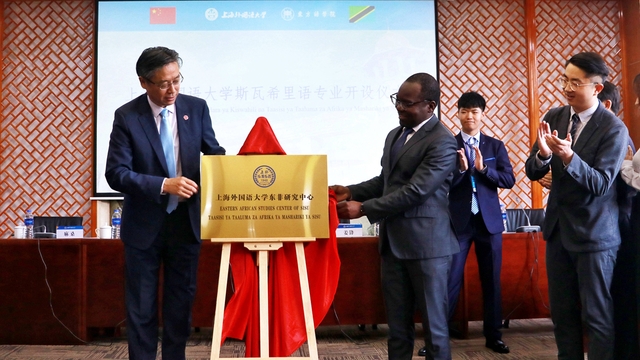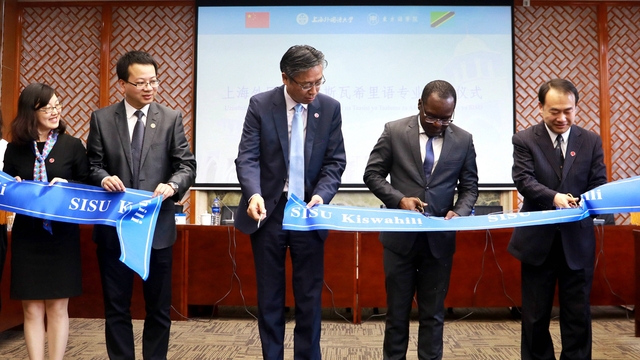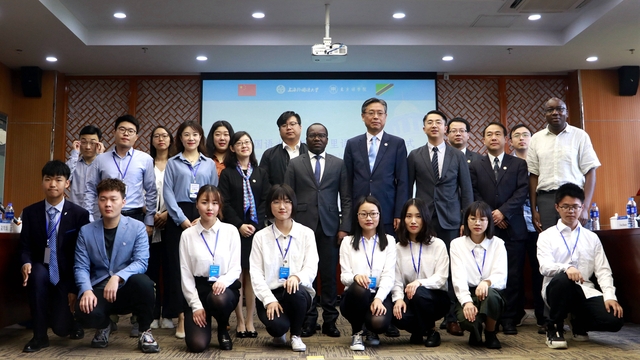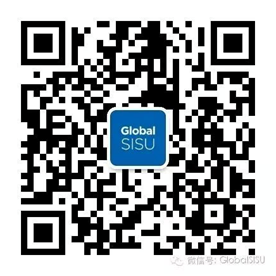 Unveiling the Eastern African Studies Center
Unveiling the Eastern African Studies Center Cutting the ribon to launch the Kiswahili program
Cutting the ribon to launch the Kiswahili program Group photo
Group photoOn May 11, 2019, Shanghai International Studies University (SISU) held the first Kiswahili Language and Culture and East African Regional Studies symposium and the launching ceremony for Kiswahili BA degree program. Lusekelo Gwassa, Commercial and Cultural Counselor of the Tanzanian Embassy in China, SISU University Council Chair Jiang Feng and more than 10 experts on Kiswahili language and East African studies attended the meeting.
Before the meeting, Jiang Feng met with Gwassa and the two sides had an in-depth discussion on the cooperation and exchanges in education and culture between China and Tanzania. Jiang Feng introduced SISU’s language programs and its cultivation of outstanding international talents. He expressed his sincere gratitude for the support of the Tanzanian Embassy in China for SISU’s Kiswahili language program. Cheng Tong, dean of School of Asian and African Studies, Chen Xiaoli, council chair of School of Asian and African Studies and Ma Sang, deputy director of Office of International Cooperation and Exchange attended the meeting.
At the launching ceremony of the Kiswahili language program, Jiang Feng extended a warm welcome to Counselor Gwassa and all the experts present. In his speech, he pointed out that the founding of the Kiswahili language program and the Eastern African Studies Center (the Center) is of great significance to promote African regional studies. SISU will focus on the “multilingual+” strategy and the construction of “strategic languages” to make greater contributions to the “Belt and Road” initiative.
Counselor Gwassa pointed out in his speech that President Xi Jinping delivered an important speech at the Beijing Summit of the Forum on China-Africa Cooperation in 2018, proposing eight major initiatives plans, in which people-to-people exchanges serve as an important part, and The future of China-Africa relations lies in young people. Counselor Gwassa said that Kiswahili, as the only African local language among all the working languages of African Union, is important to Africa and beyond. He expressed his expectations for the first Kiswahili majors, hoping that they could achieve academic success and contribute to China-Africa and China-Tanzania friendship in the future. At the same time, he congratulated on the founding of the Center, hoping that it would provide a better platform for cultural exchanges and academic research between China and Africa.
Subsequently, Counselor Gwassa, Council Chair Jiang Feng and Dean Cheng Wei jointly cut the ribbon for the launching of Kiswahili language program. Then, Council Chair Jiang Feng and Counselor Gwassa jointly unveiled the Center.
The founding of the Center signals that SISU, along with developing the Kiswahili BA degree program, will promote regional studies in the history and culture of East Africa, social politics and economy and China-Africa bilateral relations. After the ceremony, the Kiswahili Language and Culture and East African Regional Studies symposium was held. The conference held in-depth discussions on the languages and social economy of East Africa, the development of Kiswahili language and the history and culture of East Africa.



